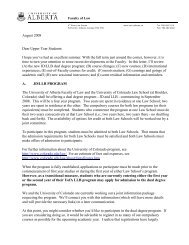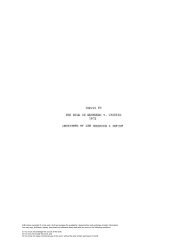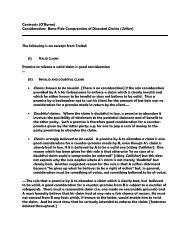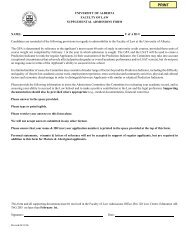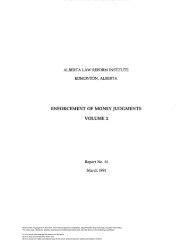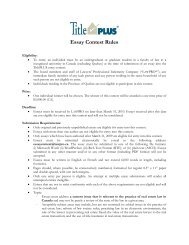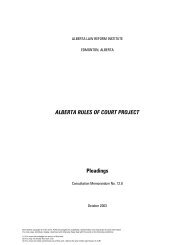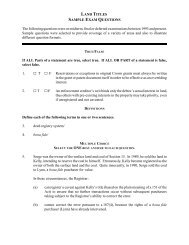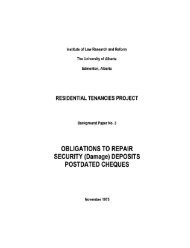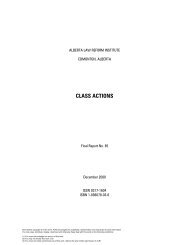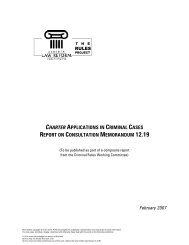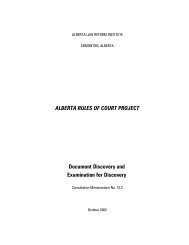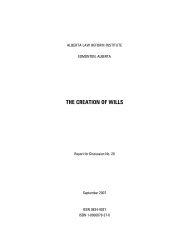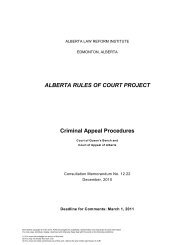ALBERTA RULES OF COURT PROJECT Enforcement of Judgments ...
ALBERTA RULES OF COURT PROJECT Enforcement of Judgments ...
ALBERTA RULES OF COURT PROJECT Enforcement of Judgments ...
You also want an ePaper? Increase the reach of your titles
YUMPU automatically turns print PDFs into web optimized ePapers that Google loves.
17<br />
2. Order “a change” (apparently any change) to a writ.<br />
3. Order a new writ to be issued.<br />
4. Direct an issue.<br />
One may wonder if the last three sweeping powers enable the judge to do what they<br />
cannot do under the first power?<br />
[44] Edmonton and Calgary practice differs as to the clerks’ willingness to make<br />
changes without a fiat. Clerks are <strong>of</strong>ten reluctant to make any change <strong>of</strong> their own<br />
accord, no matter how minor. The Clerks’ Manual limits clerks to correcting very<br />
basic typos, while referring all others to a master for action.<br />
POSITION <strong>OF</strong> THE COMMITTEE<br />
[45] The central issue is what changes should the clerk be empowered to make to the<br />
writ and what changes should be reserved to the court. In our view, the court should<br />
have a plenary jurisdiction to make changes in the writ.<br />
[46] As to the clerk’s power to amend writs, we agree that there is a need for a<br />
mechanism to fix quickly small errors in writs. In our view, the clerk’s power to make<br />
changes should be restricted to situations where the writ spells a word differently from<br />
the judgment. In this narrow area, the clerk should be able to correct the writ to make<br />
it follow the judgment. Otherwise, the applicant should be required to go to the court.<br />
[47] We suggest that Rule 349 be repealed. Rule 349.1, as amended above, should be<br />
retained and moved to the Civil <strong>Enforcement</strong> Act or the Civil <strong>Enforcement</strong> Regulation.<br />
The drafter <strong>of</strong> the new Rule 349.1 should avoid the ambiguous expression “clerical<br />
error.” The intention is to make the clerk’s jurisdiction simple, clear and narrow. Rule<br />
351 should be retained with the addition that the motion may be made ex parte unless<br />
the court orders otherwise. The new Rule 351 should be stripped <strong>of</strong> the restrictive<br />
language in the present rule. The new rule should be moved to the Civil <strong>Enforcement</strong><br />
Act or the Regulation.<br />
ISSUE No. 9<br />
Should Rule 350 on assignment and resulting amendments <strong>of</strong> writs be<br />
retained?



